Sandra and Em talk about how the cognitive function of Extraverted Feeling (nicknamed Relational Feeling) shows up in parents. This function is used by people who have ESFJ, ENFJ, ISFJ and INFJ preferences in the Myers-Briggs personality type model.
Links and references:
Personality Hacker Episode 408 – Neuroscience – Genetics – and Personality Types (with Dr. Denise Cook)
Find Your Child’s Myers-Briggs Type
Myers-Briggs Basics
Cognitive Function Cheat Sheet
Check out my podcast page for episodes broken down by topic.
Enlist Sandra’s services to create a more peaceful dynamic in your family!
Email us at familypersonalitiespod@gmail.com
Follow us on Instagram @FamilyPersonalities
Follow us on Facebook @FamilyPersonalities
Leave us a review on iTunes/Apple Podcasts
Rate, Review, Subscribe, Share
Full show notes:
Overview of Relational Feeling
- An Extraverted Function: deals with the outer world
- A Judging function: deals with how we make decisions (recall that Feeling users step into a situation emotionally, Thinking users step out of a situation emotionally. Check out episode 12 for Thinking vs Feeling in parents)
- Relational Feeling parents pay attention to the collective needs of the group in order to build relationships and decide in a connected way.
Four Facets
Use communication to build and maintain relationships. These are your “social butterflies” who stay positive, upbeat and supportive in order to create, maintain and protect interpersonal bonds.
Attuning to Others. They pay attention to how others around them are feeling, giving them a natural inclination toward sympathy or empathy.
Value interpersonal harmony. They are highly aware of how others are judging or responding to them and they will want to adjust their behavior accordingly, even sacrificing their own needs for others.
Focus on social rules. They pick up on unwritten social rules and standards very easily, and will generally follow them in order to fit in and keep harmony, and often expect others to follow them as well.
Potential Struggles:
- Overly influenced by other people and their needs or their feelings/actions leading to burnout / resentment
- Unable to handle any negativity or critical feedback that is not positive or supportive
- Being too helpful and not adhering to people’s unspoken boundaries
- The ups and downs of interpersonal conflict and then resolution become a pattern in your relationships
- Forcing the group norms on others and then shaming or excluding those who do not follow the norms.
- Overestimate emotions or idealism making them easily influenced by others
What’s the parenting style:
- Prioritize a close relationship with children and harmony within the family unit
- Can be people pleasing and sensitive to the judgment from other people – perhaps parenting the way they think other people want them to
- Sensitive to emotional children’s needs
- Maintain connections with the community
- Difficulty with conflict in the family or sibling squabbles
Write in or leave a comment: Are you a parent who uses Relational Feeling or do you know one? Do you notice these themes in your parenting? Tell us about that.
